1966 Chevrolet El Camino, Fuel Injected LS3, Disc Brakes, A/C, Auto, Air Bags!!!
- Location: Local pick-up only
- Condition: Used
- Make: Chevrolet
- Model: El Camino
- Doors: 2
- Year: 1966
- Mileage: 227
- VIN: 136806Z146226
- Color: White
- Engine size: LS3 V8
- Transmission: Automatic
- Interior color: Black
- Vehicle Title: Clear
1966 Chevrolet El Camino Description
Fusion Luxury Motors | eBay Template- Year: 1966
- Mileage: 227
- Primary color: White
- Transmission type: 4-Speed Automatic w/Overdrive
- Engine: LS3 V8
The 1966 Model Year El Camino is regarded by many El Camino enthusiast as the best and most desirable year. This 1966 is the ultimate Resto-Mod El Camino with a Fuel Injected LS3 and all of the modern goodies including a full air bag system, 4 wheel Wilwood Disc Brakes, 4-Speed Automatic with Overdrive, Vintage Air, upgraded suspension and much more.
This full custom build was completed just a few weeks ago and the nut and bolt restoration was completed with meticulous attention to detail and quality. After completing 200 miles of testing, all has been re-torqued and this beauty is ready for its new home.
The adjustable air bag system allow for a comfortable ride while allowing the slammed stance while parked.
Complete with restoration and build phots and two thick folders with every single receipt, manual and document showing the well over six figures invested in this amazing build.
- FUEL INJECTED LS3- PSI WIRING HARNESS- 4L60 W/OVERDRIVE- 12-BOLT REAREND- ALUMINUM RADIATOR- WILWOOD POWER DISC BRAKES- POWER STEERING- ACCUAIR AIR BAGS- HOOKER HEADERS- VINTAGE AIR A/C- DAKOTA DIGITAL GAUGES- HOTCHKIS SPORT SUSPENSION DOUBLE ADJUSTABLE TRAILING ARMS, SWAY BARS AND BUSHINGS- G-FORCE CROSSMEMBERGreat lease rates and Financing also available on any of our inventory!
Buy Sell Trade Consignments Welcome!
Please email concierge@fusionluxurymotors.com or call 1-818-773-8181
About the El Camino:
Ford Australia was the first company to produce a coup utility as a result of a 1932 letter from the wife of a farmer in Victoria, Australia, asking for "a vehicle to go to church in on a Sunday and which can carry our pigs to market on Mondays". Ford designer Lew Bandt developed a suitable solution, and the first coup utility model was released in 1934.
The mid-1955 introduction of Chevrolet's Cameo Carrier pickup truck helped pave the way for the El Camino. Although it was a model variant of Chevrolet's Task Force light-duty pickup, the Cameo offered an array of car-like features that included passenger-car styling, fiberglass rear fenders, two-tone paint, a relatively luxurious interior, as well as an optional V8 engine, automatic transmission, and power assists. As always, there was a GMC version offered during the same time, called the GMC Suburban Carrier with the same features offered on the Chevrolet.
Ford introduced the 1957 Ranchero, and established a new market segment in the U.S. market of an automobile platform based coup utility.
In 1959, Chevrolet responded with the El Camino to compete with Ford's full-sized Ranchero. The original El Camino and Ranchero would compete directly only in the 1959 model year.
Second Generation - 1964-1967
Chevrolet reintroduced an all new, mid-size El Camino four years later based on the Chevrolet Chevelle. The 1964 model was similar to the Chevelle two-door wagon forward of the B-pillars and carried both "Chevelle" and "El Camino" badges, but Chevrolet marketed the vehicle as a utility model and Chevelle's most powerful engines were not available.
Initial engine offerings included six-cylinder engines of 194 and 230 cubic inches with horsepower ratings of 120 and 155 HP respectively. The standard V8 was a 283 cubic-inch Chevrolet small block with two-barrel carburetor and 195 HP with optional engines including a 220 HP 283 with four-barrel carburetor and dual exhausts. Added to the El Camino's option list during the course of the 1964 model year were two versions of the 327 cubic-inch small block V8 rated at 250 and 300 HP-the latter featuring a higher compression ratio of 10.5:1, larger four-barrel carburetor and dual exhausts. El Caminos also featured Air shocks in the rear, as well as fully boxed frames. The shocks were continued over all generations, the frames only thru 1967.
The 1965 El Camino received the same facelift as the '65 Chevelle, with a more pronounced V-shaped front end, and a higher performance L79 version of the 327 engine rated at 350 HP that was also available in Chevelles. Most of the other engines were carried over from 1964, including the 194 and 230 cubic-inch Turbo Thrift sixes, the 195 HP 283 cubic-inch Turbo-Fire V8 and 327 cubic-inch Turbo-Fire V8s of 250 and 300 HP
1966
In 1966, GM added a 396 cu in (6.5 L) V8 engine to the lineup rated from 325 to 375 HP. The 1965 327 would run low 15s in the 1/4 mile (at some 90 mph), while 1966 to 1969 models were easily into the mid- to upper-14s. New Sheetmetal highlighted the 1966 El Camino, identical to the Chevelle. A new instrument panel with horizontal sweep speedometer was featured. Inside, the standard version featured a bench seat interior and rubber floor mat from the low-line Chevelle 300 series, while the Custom used a more upscale interior from the Chevelle Malibu with plusher cloth-and-vinyl or all-vinyl bench seats and deep twist carpeting, or optional Strato swivel bucket seats with console. A tachometer was optional.
- 20837 Nordhoff St,
Chatsworth, CA, 91311, US - (818) 773-8181
- concierge@fusionluxurymotors.com
- www.fusionluxurymotors.com
- View our other auctions
- Email to friend
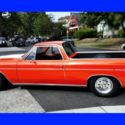 1966 Chevrolet El Camino - Fuel Injected, Disc Brakes. Low Miles and Low Reserve
1966 Chevrolet El Camino - Fuel Injected, Disc Brakes. Low Miles and Low Reserve
Mileage: 99,999
 1966 Chevrolet Corvette Convertble LS6 Fuel Injected 5 Speed AC PS Disc Brakes
1966 Chevrolet Corvette Convertble LS6 Fuel Injected 5 Speed AC PS Disc Brakes
Mileage: 1327
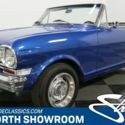 Fun Drop Top! Fuel Injected LT1 350 V8, Auto w/ O, Pwr Steer/Brakes w/ Frt Disc
Fun Drop Top! Fuel Injected LT1 350 V8, Auto w/ O, Pwr Steer/Brakes w/ Frt Disc
Mileage: 36111
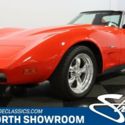 Very Clean! Fuel Injected 5.7L TPI V8, Auto, A/C, PS, Power Disc Brakes, Nice!
Very Clean! Fuel Injected 5.7L TPI V8, Auto, A/C, PS, Power Disc Brakes, Nice!
Mileage: 47961
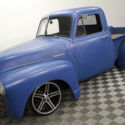 1952 Chevrolet 3100 Pickup Truck. Fuel Injected. Disc Brakes! Restored. Rat Rod
1952 Chevrolet 3100 Pickup Truck. Fuel Injected. Disc Brakes! Restored. Rat Rod
Mileage: 5,000
 1958 CHEVROLET IMPALA 73,563 Miles FUEL INJECTED 348 COLD A/C 4WHL DISC BRAKES!
1958 CHEVROLET IMPALA 73,563 Miles FUEL INJECTED 348 COLD A/C 4WHL DISC BRAKES!
Mileage: 73563
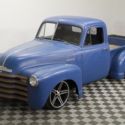 1952 Blue Fuel Injected V6. Disc Brakes, Custom Rat Rod!
1952 Blue Fuel Injected V6. Disc Brakes, Custom Rat Rod!
Mileage: 5,000
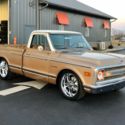 1969 C10 CST Short Bed, Fuel Injected BBC, Disc Brakes, Resto Mod, Pro Touring
1969 C10 CST Short Bed, Fuel Injected BBC, Disc Brakes, Resto Mod, Pro Touring
Mileage: 28000
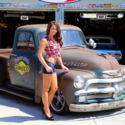 1954 Chevy 3100 Rat Rod Fuel Injected V8 Four Wheel PDB PS Disc Brakes
1954 Chevy 3100 Rat Rod Fuel Injected V8 Four Wheel PDB PS Disc Brakes
Mileage: 90,440


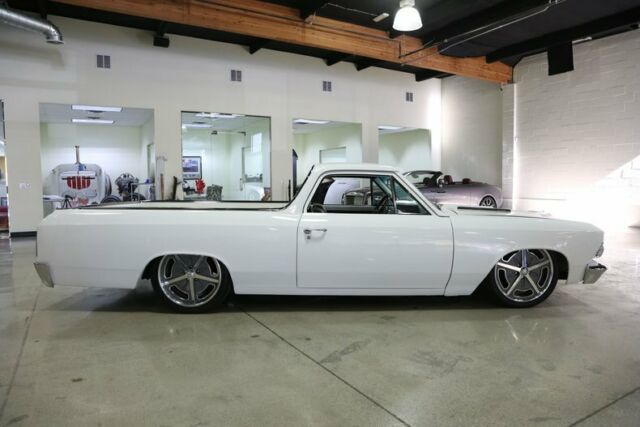





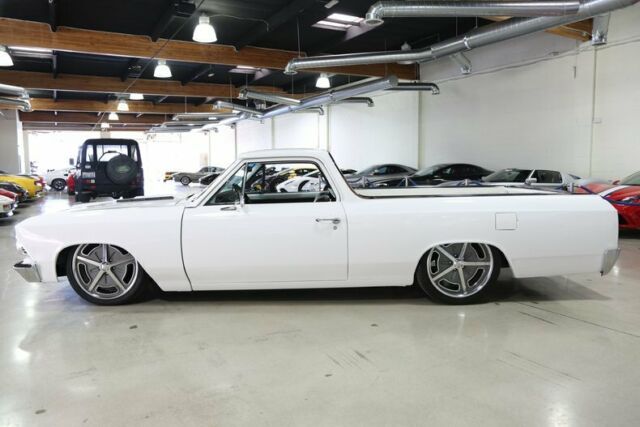



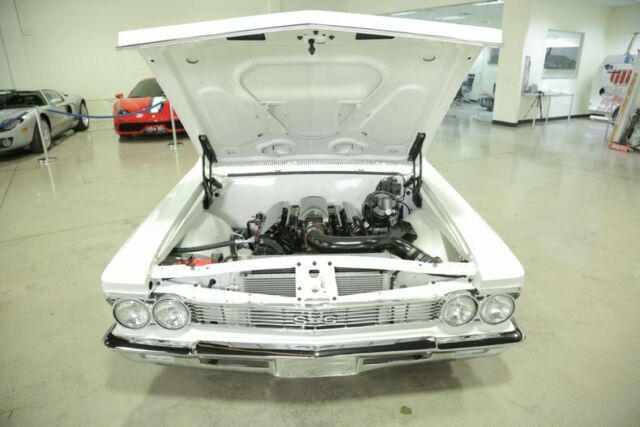
 1966 CHEVROLET CHEVELLE LS6 FUEL INJECTED A/C WILWOOD 4WHL DISC LEATHER LOADED!!
1966 CHEVROLET CHEVELLE LS6 FUEL INJECTED A/C WILWOOD 4WHL DISC LEATHER LOADED!!